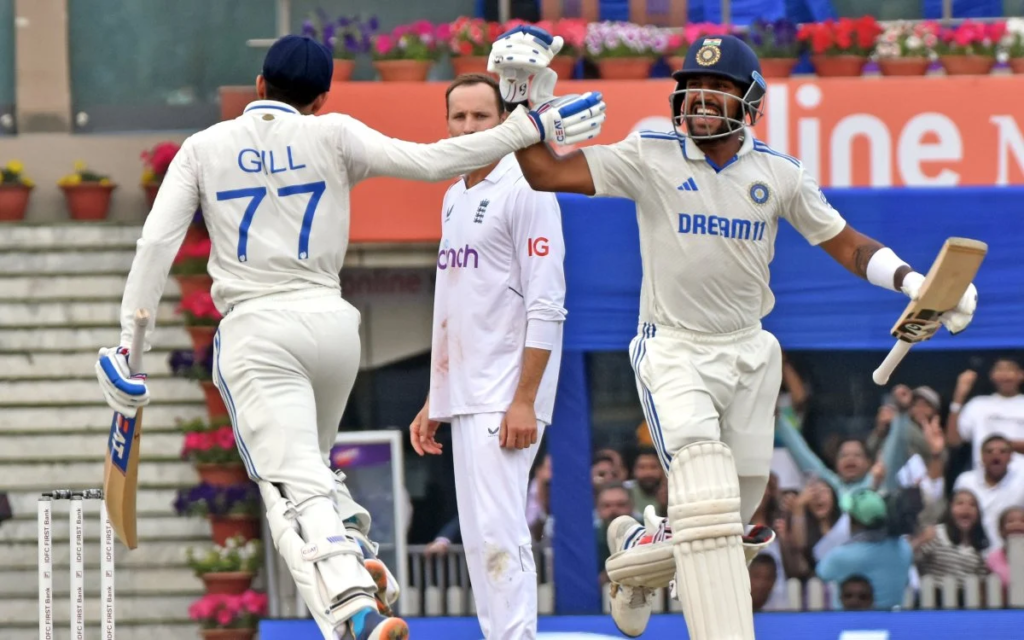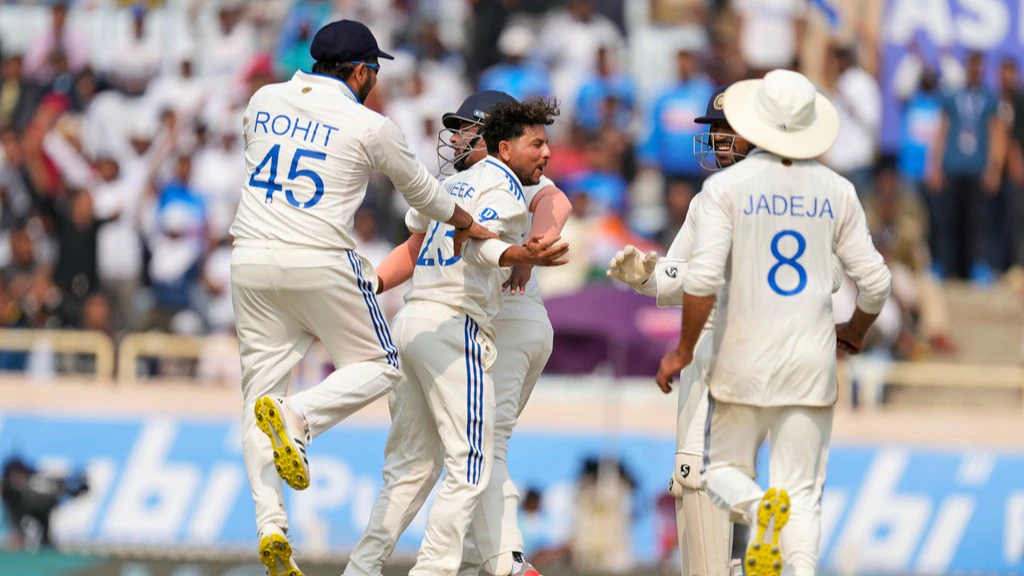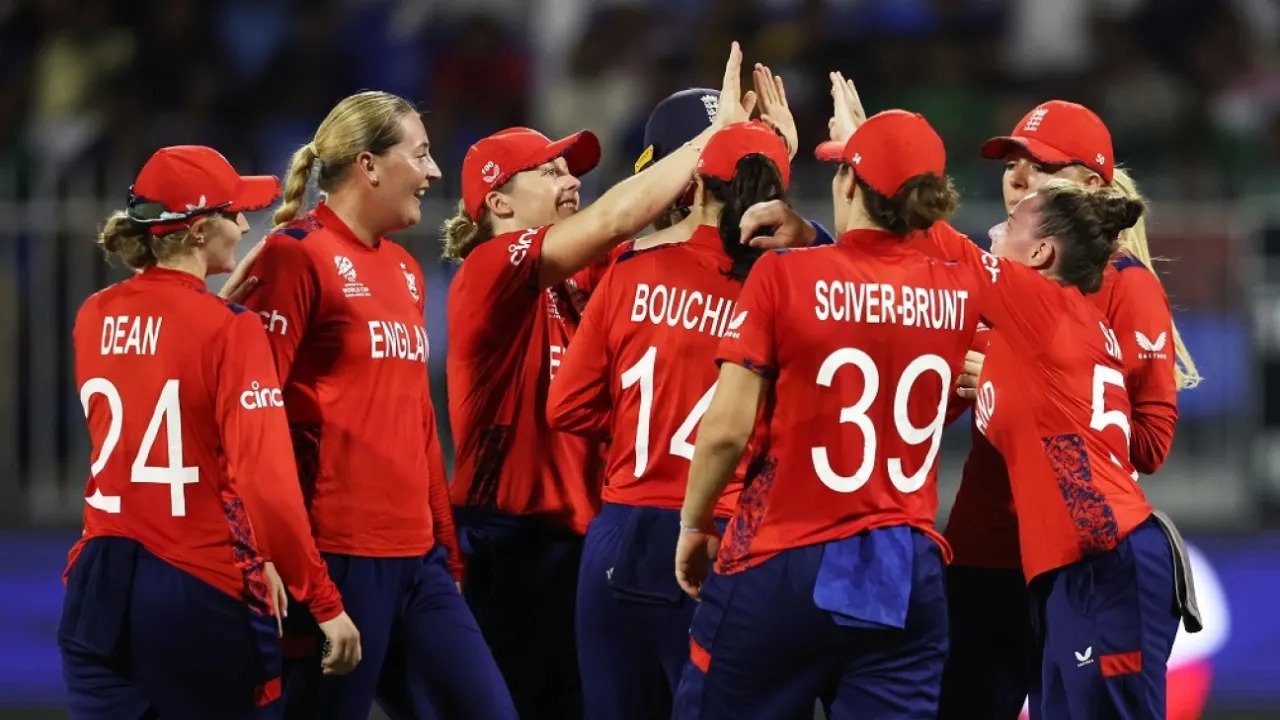Despite England’s Spin Storm Gill and Jurel Steer India to Secure Series Win 3-1
Led by the dynamic duo of Shubman Gill and Dhruv Jurel, India weathered England’s formidable bowling attack to claim victory and assert their dominance with a 3-1 series lead.
India demonstrated resilience against England’s spin onslaught to secure a commanding series win in the fourth Test, prevailing by five wickets.

England 353 (Root 122*, Robinson 58, Jadeja 4-67) and 145 (Crawley 60, Ashwin 5-51, Kuldeep 4-22) were defeated by India 307 (Jurel 90, Jaiswal 73, Bashir 5-119) and 192 for 5 (Rohit 55, Gill 52*, Jurel 39*, Bashir 3-79) by five wickets.
The game was opened by Bashir’s two-for-two after lunch, but ultimately England had too little to play with Shubman Gill and Dhruv Jurel, the sixth wicket pair, holding back England‘s threat to win the fourth Test in four days and take the series 3-1 with one Test remaining.
India’s pursuit took a serious knock after Rohit Sharma and Yashasvi Jaiswal opened the scoring with a brilliant partnership. They lost five wickets for 36 runs in 20.5 overs, leaving them at 120 for 5, needing 72 more runs to win. However, they were successful because of Gill and Jurel’s unwavering partnership—the latter of whom was playing just his second Test.
After a promising start when they resumed on 40 without loss, needing 152 more, India was made to work hard by England’s young spinners, Shoaib Bashir and Tom Hartley, who bowled with great maturity in the second hour of the morning session. After taking three wickets in his opening five-wicket innings, Bashir gave India serious fear.
But in the end, England had left India with too little to do after Jurel’s 90 got India close to victory in the first innings, and R Ashwin’s five-for and Kuldeep Yadav’s four saw England bowled out for 145 in the second, leaving India with a victory target of 192 with two days and a bit remaining. It took them just over thirty minutes.
Bazball is an ideology with a track record of four wins, three draws, and 0 losses in Test series up to this point, making it more than just a “vibe”. However, the atmosphere was what nearly kept England’s faith alive.
Having lost three wickets in 8.5 overs, it was likely the reason India were so cautious.
Jaiswal, who has been so good this season, was removed by James Anderson with an age-defying mid-air catch at short third, but India managed just 34 runs in the 19.3 overs before lunch.

After the interval, Ravindra Jadeja gave Bashir his first of two wickets in two balls with a full toss straight to midwicket, which may have been the reason India felt uneasy. Ben Foakes’s cries of “we’re a bang-bang away, lads” with India needing just 27 more could have been the reason why devoted England supporters could have been forgiven for thinking “just maybe” at that moment.
However, India has a track record that speaks for itself; they haven’t lost a home Test series in almost 11 years. They were crushing their aim on Monday morning, scoring 42 runs in the first eight overs of play. After Rohit hit Anderson for six over mid-on, his team passed fifty and still had 140 to reach. While they increased the boundary count, he and Jaiswal employed sweeps and reverse sweeps against Bashir and Hartley.
However, Joe Root broke their partnership at 84 runs when he extracted a full delivery to get some spin out of the rough. This interfered with Jaiswal’s attempt to clear extra cover when his outside edge soared to short third and Anderson, now 41, lunged forward for a full-stretch capture.
With a delivery outside off that brushed the edge ever so slightly before swooping into Foakes’ gloves, Hartley pulled Rohit out of his crease. When Foakes flicked off the bails with Rohit still out of his ground, he would have been out for 55 even without the edge. At first, it was believed to be a stumping until UltraEdge showed a small spike.
After Rajat Patidar’s length ball turned from off stump into the inside edge and popped to Ollie Pope at backward short leg via the knee roll, Bashir dismissed him for a six-ball duck in the next over. Patidar, who has only twice reached double digits and once crossed 30 in six innings, had a bad series that continued.
India had seven wickets remaining and needed 74 at lunchtime. Then, in the second over following the interval, Bashir turned the tide in favour of England by taking two wickets off the same ball. After he got one to turn from outside off, he had Jadeja caught by Jonny Bairstow off a full toss, beating Sarfaraz Khan’s defensive prod to take a thin edge onto the pad and into Pope’s hands at backward short leg.

After Jurel survived the hat-trick ball, he got the task under 50 runs when he hit a big, wide delivery from Bashir through the covers, marking India’s first boundary off the bat in 31 overs.
He and Gill then set to work, gradually gathering the necessary number of runs. At the beginning of their partnership, Jurel assumed the lead role, scoring 32 off 70 balls until Gill, with 39 off 119, got out of control. Gill hit Bashir over long-off with 20 runs required, and two balls later, he raised his fifty by hitting the fence at deep midwicket.
Jurel also got in on the action, dragging Hartley through mid-on for four runs. He also scored the winning runs, running two with Gill after working a Hartley delivery off his legs. India’s success also owed much to Jurel’s opening innings. As India embarked on their chase of England’s 353, inspired by Joe Root’s comeback to form with an undefeated century, only he and Jaiswal, at 73, passed 40.
After dismissing Ashwin and Sarfaraz, Jurel’s team was 161 for 5, and he went on to put on a 76-run partnership with Kuldeep and 40 more with No. 10 Akash Deep, who was playing in his first Test match. India had scored 307 runs by the time Jurel was the last man out, cutting the gap to just 46.
India’s first innings saw eight wickets divided between Bashir and Hartley, and England was counting on themselves to accumulate a sizable lead when they resumed play. However, with England’s batters racking up three ducks and Bairstow being the only other player to bat above 20, Zak Crawley’s half-century was the only noteworthy contribution. With lots of mystery sprinkled in, it left India with an aim that turned out to be as attainable as it appeared.




